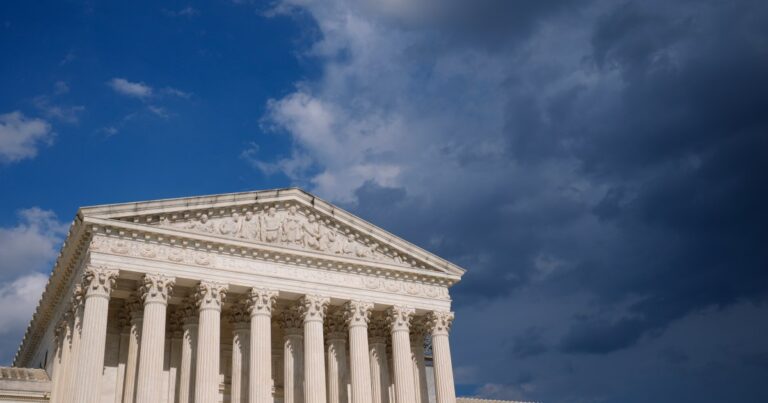Supreme Court declines to rule on Texas and Florida laws, but upholds social media platforms’ right to moderate content.
The U.S. Supreme Court has declined to rule on whether Republican-backed laws limiting social media platforms’ ability to moderate content violate free speech, sending the issue back to lower courts.
The U.S. Supreme Court on Monday ordered the 5th and 11th Circuit Courts of Appeal to review the Texas and Florida laws, arguing that the courts failed to properly consider the laws’ compatibility with the First Amendment to the U.S. Constitution.
Although the Supreme Court did not rule on the constitutionality of the laws, the unanimous decision upheld the right of platforms such as Facebook, TikTok and YouTube to manage the content on their platforms.
Writing for the court, Justice Elena Kagan said social media companies should enjoy editorial discretion comparable to that of newspapers and that the First Amendment “is not suspended when social media is involved.”
“The principle does not change because the organized compilation has moved from the physical world to the virtual world,” Kagan wrote in an opinion signed by five of the nine justices.
Florida and Texas have passed laws limiting platforms’ discretion to moderate content, following allegations from conservatives that Big Tech systematically favors liberal perspectives and censors right-wing viewpoints.
Republican Gov. Ron DeSantis and Gov. Greg Abbott signed the laws months after Facebook and X banned former President Donald Trump over his posts about his supporters’ storming of the U.S. Capitol on Jan. 6, 2021.
President Joe Biden’s administration has opposed the state laws, backing a legal challenge led by the tech industry’s largest lobbying groups.
Following legal challenges, the 11th Circuit Court of Appeals struck down the Florida law, while the 5th Circuit Court of Appeals upheld the Texas law.
The Supreme Court’s decision leaves the Texas and Florida laws intact but on hold following injunctions imposed by lower courts.
Technology industry trade groups welcomed Monday’s decision.
Chris Marchese, director of the NetChoice Litigation Center, said the Supreme Court upheld “the Constitution’s unparalleled protections for free speech, including the world’s most important communications tool, the Internet.”
Matthew Schruers, president and CEO of the Computer & Communications Industry Association, said he was encouraged that the court had “made it clear that states do not have the right to try to steer the marketplace of ideas in a favorable direction, although our work is not done.”
Texas Attorney General Ken Paxton said he would continue to fight for his state’s law, calling censorship by tech companies “one of the greatest threats to free public expression and election integrity.”
“No American should be silenced by Big Tech oligarchs,” Paxton said on X.


